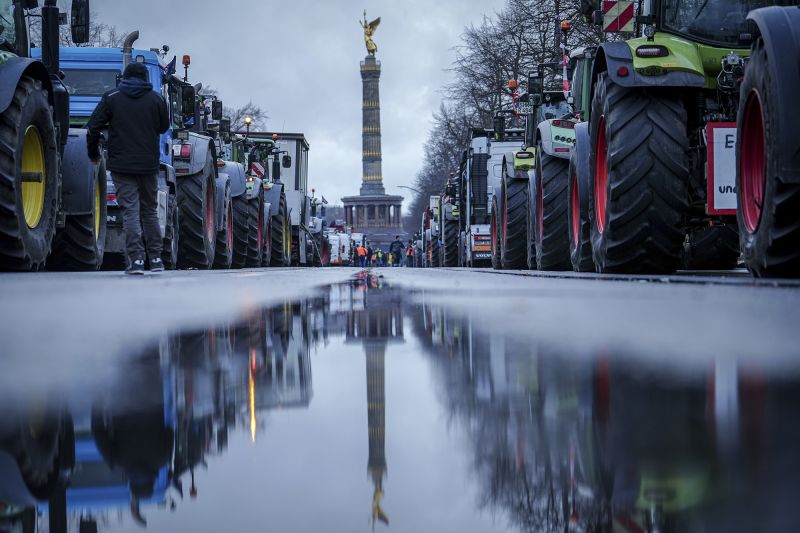Protests have erupted across Germany, dominating news headlines and painting an unsettling picture of political unrest in one of Europe’s most prominent nations. At the core of these demonstrations, an opportunistic far-right movement sees an opening to galvanize its base and steer the German discourse towards its ambitions. This phenomenon can be dissected through three key perspectives: the surge of the far-right; the societal friction it has stirred; and the implications for Germany and the world.
Firstly, understanding the surge of the far-right requires a look at the root triggers. The unrest has seen far-right groups seize on current socio-political tensions and dilemmas fuelled by a slow response to the COVID-19 pandemic, economic disparities, and a national sentiment against immigration. Covering their aggressive ideations under the guise of patriotism and national resurgence, these groups are inciting mistrust towards the government while advocating for a ‘pure’ Germany that entices the disenfranchised and unsettled.
Chief amongst these groups is Alternative for Germany (AfD), a political party that was on the fringes six years ago but is now a significant force in the national parliament. Leveraging technology and divisive discourse, they have had widespread impact on public opinion. Using the protests as a soapbox, they aim to further expand their influence.
Furthering societal discord, these far-right movements vigorously stoke fear and discontent. They channel frustrations on sensitive subjects such as immigration and the perceived dilution of ‘German culture’, in an attempt to create a wedge in society and drive their agenda. However, it must be noted that many German citizens are appalled by the divisive rhetoric and are speaking out against this wave of extremism. They worry that the country is treading a dangerous path, one that might reverse years of progress made on multiculturalism and integration.
These protests, coupled with the far-right’s maneuverings, also carry strong implications for Germany and the world. For Germany, the turmoil threatens its political stability and its cherished democratic values. The protests are prompting concerns about a potential resurgence of extremist views not seen in Germany since World War II.
On a global scale, Germany’s internal discord carries its own set of repercussions. As a leading European country, Germany’s stability has long been an anchor for the European Union. Thus, a rise in far-right politics may produce shockwaves that could disrupt the unity of the bloc, possibly triggering a domino effect of right-wing resurgence in neighboring nations.
The far-right’s rise is also a test for Angela Merkel’s governing coalition, which will need to navigate the volatile arena with finesse while assuaging the public’s concerns. The government has a challenging task ahead in terms of managing the demands and grievances of German citizens, while working to minimize the influence of extreme right-wing viewpoints.
In a broader context, these developments highlight the importance of transparency and accountability in governance. They show that in times of uncertainty and insecurity, marginalized ideologies can find fertile ground to grow. In this mix, Germany’s protesters and the far-right presence reveal a nation grappling with a controversial socio-political phase and facing the daunting task of reconciling its present with its past. Today’s Germany will need to stay true to democratic values while addressing the issues that are fueling this discontent, to ensure a harmonious future for all its citizens.
In summary, the sweep of protests across Germany provides a striking insight into the contemporary German sociopolitical landscape. These disruptive demonstrations are stirring up much more than just collective anger and frustration; they are providing a platform for a resurgent far-right movement to amplify its divisive rhetoric. As these developments unfold, it becomes increasingly vital for the German government and its citizens to uphold democratic values even amidst intense discord, condemning extremist views while addressing legitimate concerns and grievances with due diligence and fairness.




